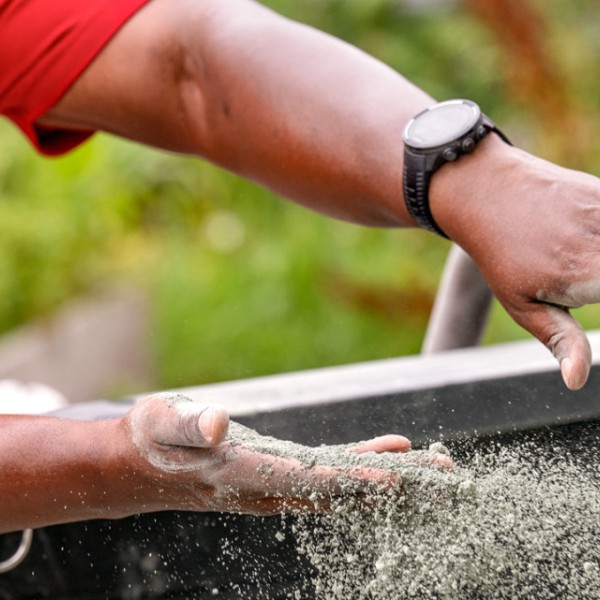Major at the University of Puerto Rico:
- Agricultural and Environmental Systems
Cornell faculty advisor:
Summer project:
"During my summer internship at Cornell University, I was working on DeNitrification-DeComposition (DNDC), carbon calculators, R programming language, and a review on the topic of Life Cycle Assessment (LCA). DNDC is a program that helps run simulations of the agrochemistry of carbon and nitrogen in agricultural systems. With DNDC you can control variables like the atmospheric concentration of carbon dioxide, air temperature, precipitation, fertilizer amount, and soil porosity, among other factors. All of these factors can be manipulated to simulate different scenarios where one could study how the crop will behave, predict its yield, track nitrogen leaching, and even gas emissions. The other programs and topics we worked on during the internship helped us analyze greenhouse gas emissions, facilitated extraction and interpretation of data, and aided in assessing the environmental impact of agricultural systems.
What do you wish more people know about agriculture in Puerto Rico?
"I wish that more people in Puerto Rico know about the importance of agriculture, especially young people. I wish that in every school, students could have the opportunity to visit farms and see that the food they eat is thanks to the big effort of farmers. In this way, we can motivate them to get involved in agriculture. This must also be accompanied by increased government attention to the agricultural sector. Puerto Rico has the potential to improve its food security, but we must have greater sovereignty in our agricultural market."
What's the importance of agricultural sustainability in the context of Puerto Rico?
"One numerical data that you could commonly hear regarding food security in Puerto Rico is that more than 80% of the food Puerto Ricans eat is imported. On top of that, many local farmers are affected by what is called 'food dumping' which causes them to compete with products of lower costs making it difficult to sell their produce. We also need to work on agricultural extension services because some farmers have a hard time adapting to technological advances and knowing how to balance the social, economical, and environmental aspects of their farms."
What did you enjoy most about your Cornell experience?
"I was amazed at how each farm with its different sizes was able to grow crops on the scale they wanted. Of course, all this was not exempt from previous challenges, but little by little they were identifying the practices that worked best for them and thus boosted their operations. All the farms we were able to visit were aware of the environmental impact of agriculture and made efforts to run their operations with a sustainable approach. All this motivated me to return to Puerto Rico and share what I learned because although we are a small Island, we can do more for our agricultural sector."
What kind of impact do you want to have in the world
"I am well aware that the only reason many of us have the privilege of eating three times a day or more is due to the efforts of many farmers and agronomists. However, there are hundreds and hundreds of people who are starving, many others are obese, and on top of all this, the predictions are that the world population will increase and we must increase food production. These are challenges that need to be worked on, and agriculture plays an important role in helping to solve them. Since I was little I have said that my vocation is to work with plants, and I have a great desire to work on the aforementioned challenges through plant research. In this way, also identify agricultural systems that meet our needs taking into account an economic, social, and environmental balance. To this, I add my desire to one day be able to contribute to the research of plants in space."












